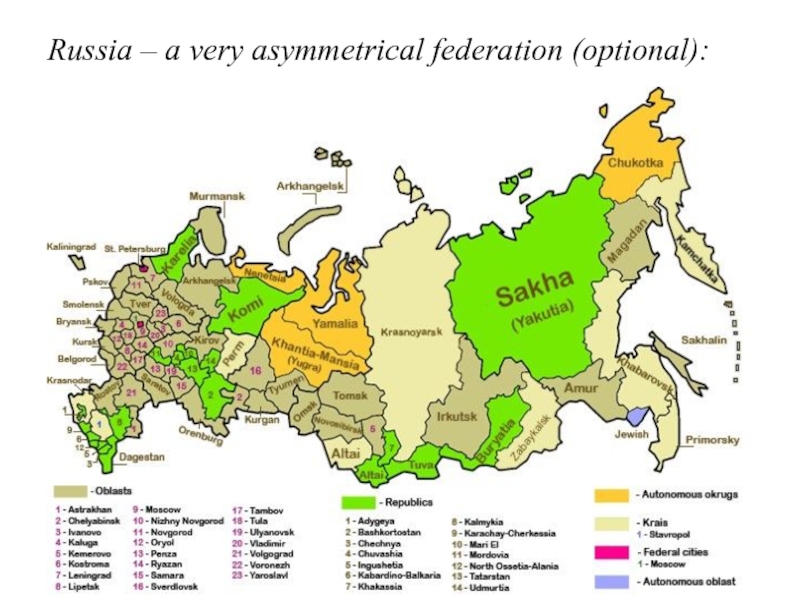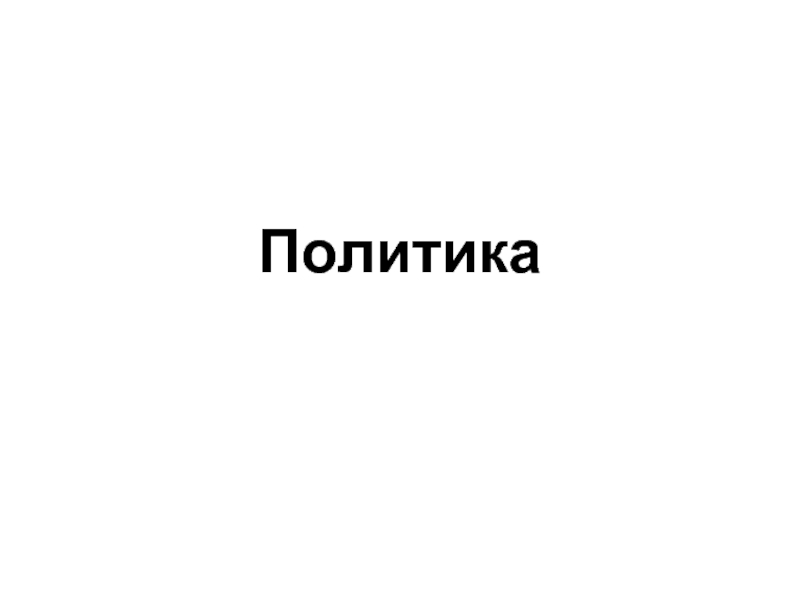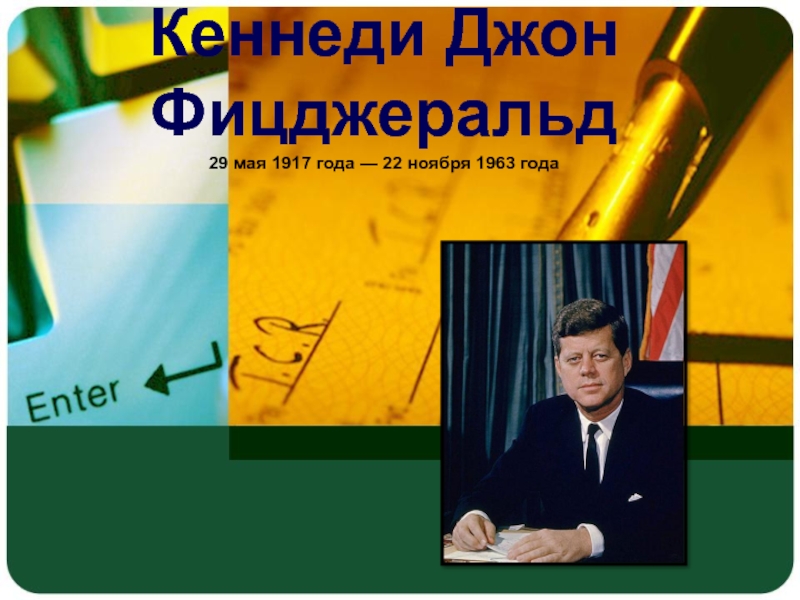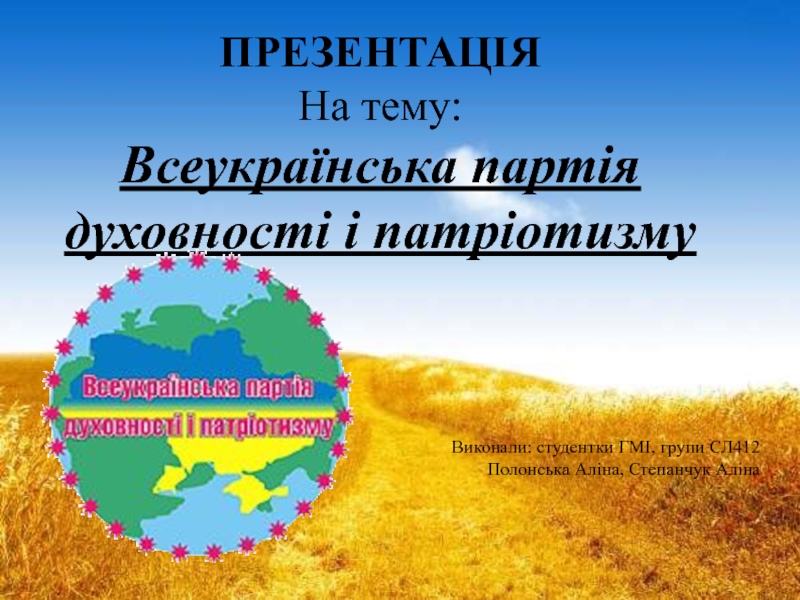Nation and the State
- Главная
- Разное
- Дизайн
- Бизнес и предпринимательство
- Аналитика
- Образование
- Развлечения
- Красота и здоровье
- Финансы
- Государство
- Путешествия
- Спорт
- Недвижимость
- Армия
- Графика
- Культурология
- Еда и кулинария
- Лингвистика
- Английский язык
- Астрономия
- Алгебра
- Биология
- География
- Детские презентации
- Информатика
- История
- Литература
- Маркетинг
- Математика
- Медицина
- Менеджмент
- Музыка
- МХК
- Немецкий язык
- ОБЖ
- Обществознание
- Окружающий мир
- Педагогика
- Русский язык
- Технология
- Физика
- Философия
- Химия
- Шаблоны, картинки для презентаций
- Экология
- Экономика
- Юриспруденция
Nation and the state. (Week 3) презентация
Содержание
- 1. Nation and the state. (Week 3)
- 2. State vs Nation: Some may believe
- 3. State(s):
- 4. The State and states: Meaning of the
- 5. State(s): state (a general definition):
- 6. The State (optional): That means that
- 7. Attributes of the state: most
- 8. International attributes of the State: 1.
- 9. The rise of the modern State:
- 10. The State vs. Nation: How the
- 11. The State vs. Nation: ethnic
- 12. The State vs. Nation: How the
- 13. Nations without the state – the Kurds:
- 14. The State vs. Nation (optional): problems with
- 15. The Nation-State: There another important concept: the
- 16. Classifications of states: classifications of states
- 17. Types of states (I): different classification of
- 18. Types of states (II): by political system
- 19. Types of states (II): thus, there may
- 20. Forms of State: Forms of State
- 21. Images of Britain: The Queen Elizabeth II
- 22. Classifications of states: By different political
- 23. Unitary states & federations: unitary vs.
- 24. Federal Republic of Germany – Bundesländer Each
- 25. State and devolution (optional): State and devolution
- 26. Devolution in the U.K.:
- 27. State and devolution (optional): Other examples of
- 28. Confederations: Switzerland - a special case: Confoederatio Helvetica Switzerland is often called a “confederation”
- 29. Switzerland – a confederation: Switzerland has some
- 30. Map of Switzerland – cantons:
- 31. Switzerland: 2. participatory (semi-direct) democracy
- 32. Unitary!
- 33. Seminar (optional): What kind of federation
- 34. Russia – a very asymmetrical federation (optional):
Слайд 1WEEK 3
What is Nation and what is State?
State, its types and
arrangement: unitary and federal
Слайд 2State vs Nation:
Some may believe that the state and nation are
the same…, or quite similar concepts…
In political science, we have to be careful in making the difference between the two
In political science, we have to be careful in making the difference between the two
Слайд 4The State and states:
Meaning of the “state”
I a state – a)
a country; b) as a unit /subject of international relations
II the State – (more abstract) as a national “meta” institution
(III a state – as a unit of internal subdivision of a state /country - e.g. states comprising the U.S.A.)
II the State – (more abstract) as a national “meta” institution
(III a state – as a unit of internal subdivision of a state /country - e.g. states comprising the U.S.A.)
Слайд 5State(s):
state (a general definition):
a complex political organization
and
the combination of people, territory,
& sovereign government
for more specific characteristics, see next slides
for more specific characteristics, see next slides
Слайд 6The State (optional):
That means that the state
can be defined
(a) by
its internal attributes & functions
and /or
(b) by its external attributes, based on its relationships in the international system
and /or
(b) by its external attributes, based on its relationships in the international system
Слайд 7
Attributes of the state:
most important internal attributes (characteristics) of the state:
1.
a territory (bounded by the internationally recognized border)
2. population (permanently settled)
3. constitution & government (the political system & central administration)
4. organized economy & some services provided by the state
5. unified communication /transport infrastructure, serving the above
2. population (permanently settled)
3. constitution & government (the political system & central administration)
4. organized economy & some services provided by the state
5. unified communication /transport infrastructure, serving the above
Слайд 8International attributes of the State:
1. international border recognized by other states
2.
sovereignty (independence) in the international system (&recognition of this sovereignty)
3. external relations (& diplomacy), and
4. national defense
States are historical creations!
3. external relations (& diplomacy), and
4. national defense
States are historical creations!
Слайд 9The rise of the modern State:
What do you know about the
rise of the modern State (i.e. state as we know it today)?
the evolution of the European model had its milestone when “Westphalian” Treaties were signed at the end of the Thirty Years' War
these states contained fundamentals of statehood and nationhood
developed established central administration, standing armies, fixed borders; rules of international relations
the evolution of the European model had its milestone when “Westphalian” Treaties were signed at the end of the Thirty Years' War
these states contained fundamentals of statehood and nationhood
developed established central administration, standing armies, fixed borders; rules of international relations
Слайд 10The State vs. Nation:
How the State differs from Nation?
a nation is
usually defined in cultural terms: it is a larger group of people with common language, culture, religion, and unifying perception of their unique history and origins…
While the state is defined rather in the political and administrative terms...
While the state is defined rather in the political and administrative terms...
Слайд 11The State vs. Nation:
ethnic vs. civic nation
ethnic n. based on ethnicity
(Japan)
civic n. based on citizenship (American)
civic n. based on citizenship (American)
Слайд 12The State vs. Nation:
How the State differs from Nation?
a nation may
be larger than a state
countries that are states but not nations (?)
many nations do not have their state
[examples]
countries that are states but not nations (?)
many nations do not have their state
[examples]
Слайд 14The State vs. Nation (optional):
problems with definitions of some concepts:
ethnicity, nationality…
identity…
these are not completely objective categories... the role played by self-identification
often depends on how the person feel about it (self-identification)
x
citizenship – a more objective category: relates to the state of which a person is a citizen
these are not completely objective categories... the role played by self-identification
often depends on how the person feel about it (self-identification)
x
citizenship – a more objective category: relates to the state of which a person is a citizen
Слайд 15The Nation-State:
There another important concept: the nation-state
(= fusion of 2
different principles of state and nation)
= 1. state with a single predominant national identity
= 2. the principle on which modern states are built
the nation-state became the world model some time in the 17-18th c. the notion of the nation-state took hold
even in best cases, states are only approximation to an ideal nation-state…
we are now living in the age of the nation-states , but
declining importance of nations-state in the era of globalization (?)
= 1. state with a single predominant national identity
= 2. the principle on which modern states are built
the nation-state became the world model some time in the 17-18th c. the notion of the nation-state took hold
even in best cases, states are only approximation to an ideal nation-state…
we are now living in the age of the nation-states , but
declining importance of nations-state in the era of globalization (?)
Слайд 16Classifications of states:
classifications of states – are many:
i.e. we can classify
states by:
geographic location, shape, size, population, economic power, etc.
We will mention only some characteristics by which we may classify states… Be able to provide examples for all of we mention!
geographic location, shape, size, population, economic power, etc.
We will mention only some characteristics by which we may classify states… Be able to provide examples for all of we mention!
Слайд 17Types of states (I):
different classification of states:
a) by location
b) by age (compare France vs. Slovenia)
c) by size (large vs. ‘ministates’)
d) by # of population
e) by its economic power
f) by level of development (developing x developed)
g) by its political system / arrangements
c) by size (large vs. ‘ministates’)
d) by # of population
e) by its economic power
f) by level of development (developing x developed)
g) by its political system / arrangements
Слайд 18Types of states (II):
by political system / arrangements:
States are organized differently…
they
may have different political systems…
different forms of governments….
different territorial arrangements…
different forms of governments….
different territorial arrangements…
Слайд 19Types of states (II):
thus, there may be:
democracies or non-democracies
republics vs. monarchies
unitary (e.g. France) vs. federal states (Germany, U.S., India)
also:
parliamentary vs. presidential systems (semi-presidential: France)
different electoral systems (“majority” vs. “proportional” , + many variants)
Слайд 20Forms of State:
Forms of State (formal distinction):
monarchy – hereditary rule by
one person (king, queen, czar…): many European states are “modern constitutional monarchies” (e.g. U.K., Spain, Sweden, Netherlands)
republic – a political system without a monarch (most of the world’s countries)
republic – a political system without a monarch (most of the world’s countries)
Слайд 21Images of Britain: The Queen Elizabeth II – she is liked
by most of the population but has almost no political power…
Слайд 22Classifications of states:
By different political –territorial arrangements…
unitary vs. federal states [vs.
confederations?]
How they differ?
Be able to tell whether major states are unitary states or federations!
How they differ?
Be able to tell whether major states are unitary states or federations!
Слайд 23Unitary states & federations:
unitary vs. federal systems
unitary - a system
of government in which a single sovereign government rules the country, which is not divided in (semi) autonomous units
federal - sovereignty is decentralized /divided between a central (or national) government and several provincial or state governments with many self-governing policies
these provinces often run their own education, health-care, social systems, etc. – as determined by the constitution
federal - sovereignty is decentralized /divided between a central (or national) government and several provincial or state governments with many self-governing policies
these provinces often run their own education, health-care, social systems, etc. – as determined by the constitution
Слайд 24Federal Republic of Germany – Bundesländer
Each of the 16 federal subjects
has its own constitution and parliament…
The individual Bundesländer have fundamental responsibility for education, the media, internal security & order (police), etc.
The individual Bundesländer have fundamental responsibility for education, the media, internal security & order (police), etc.
Especially in democracies, federal arrangements have many political implications…
Optional
Слайд 25State and devolution (optional):
State and devolution
What is devolution?
a process by
which more autonomy / power is granted to individual regions within a state
for instance, the U.K. government is giving increasing powers to Scotland & Wales…
for instance, the U.K. government is giving increasing powers to Scotland & Wales…
Слайд 27State and devolution (optional):
Other examples of devolution / devolved Government:
Spain: greater
autonomy desired by & granted to Basques and province of Catalonia
Слайд 28Confederations: Switzerland - a special case:
Confoederatio Helvetica
Switzerland is often called
a
“confederation”
Слайд 29Switzerland – a confederation:
Switzerland has some unique features of the political
system…:
1. significant regional autonomy of cantons
26 cantons (some very small); all have their own constitution
each canton enjoys virtual sovereignty over most issues, incl. taxation
1. significant regional autonomy of cantons
26 cantons (some very small); all have their own constitution
each canton enjoys virtual sovereignty over most issues, incl. taxation
Слайд 31Switzerland:
2. participatory (semi-direct) democracy
there are many mandatory referenda each year on
proposed laws (or bylaws) for approval or disapproval by the citizens…
Слайд 33Seminar (optional):
What kind of federation is Russia?
[a very asymmetrical one, and
changing…]
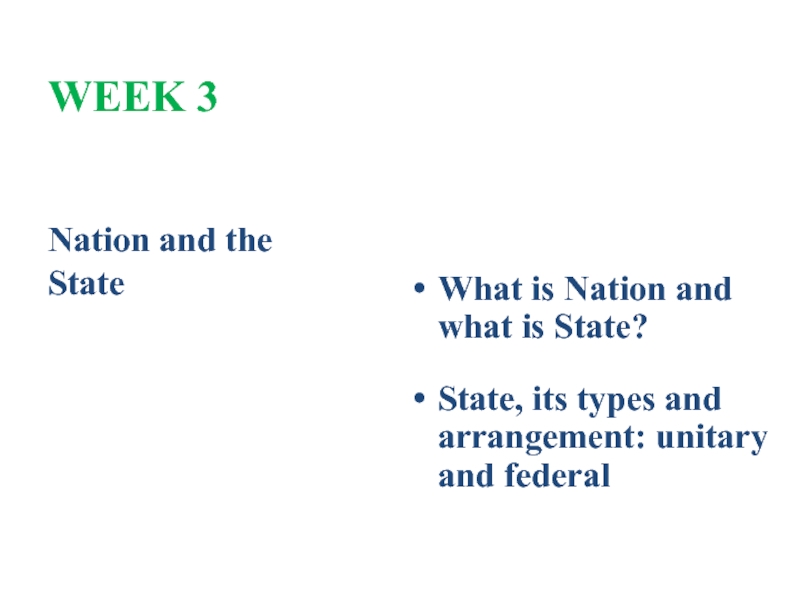
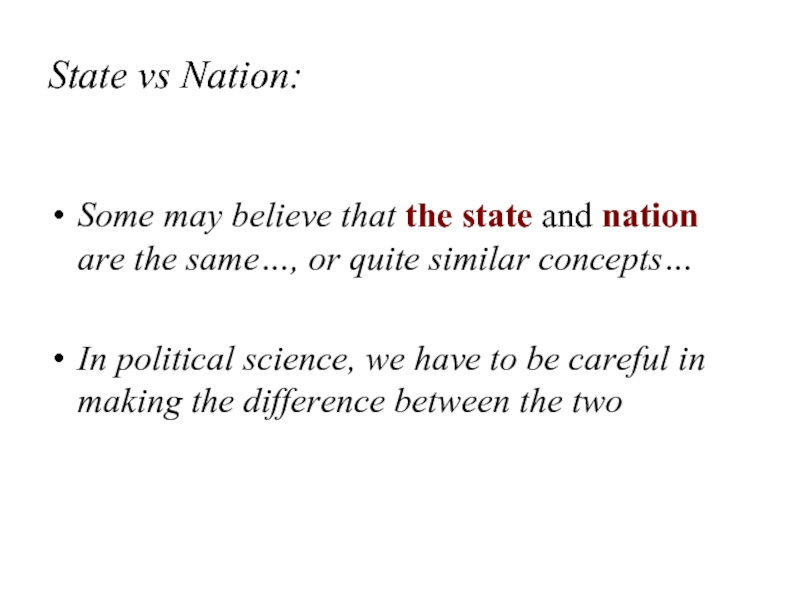
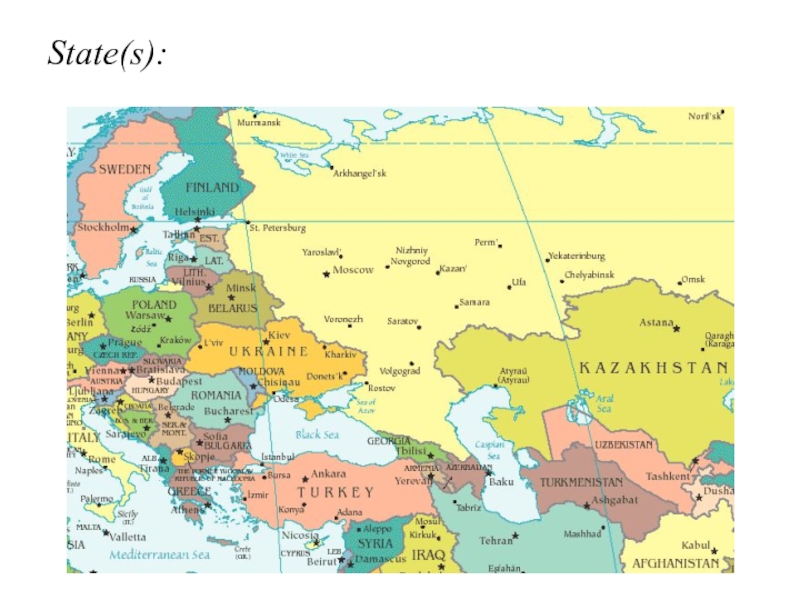
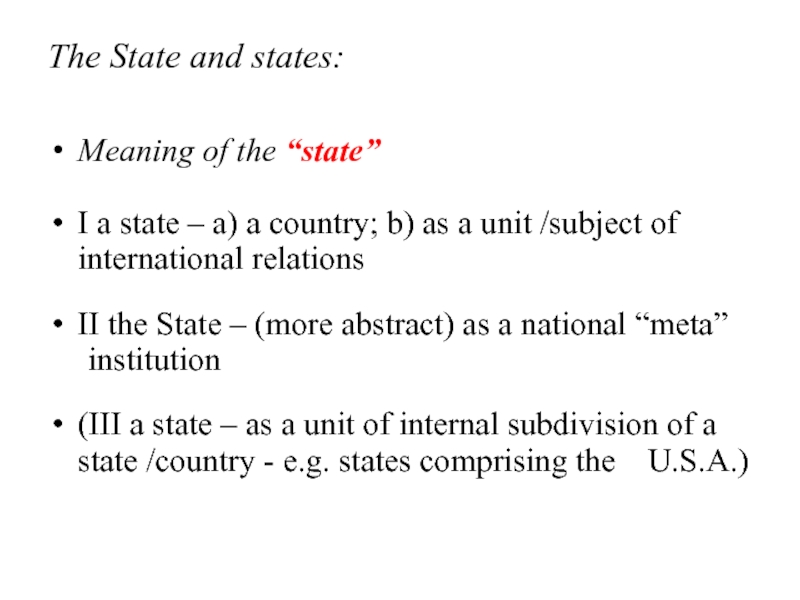
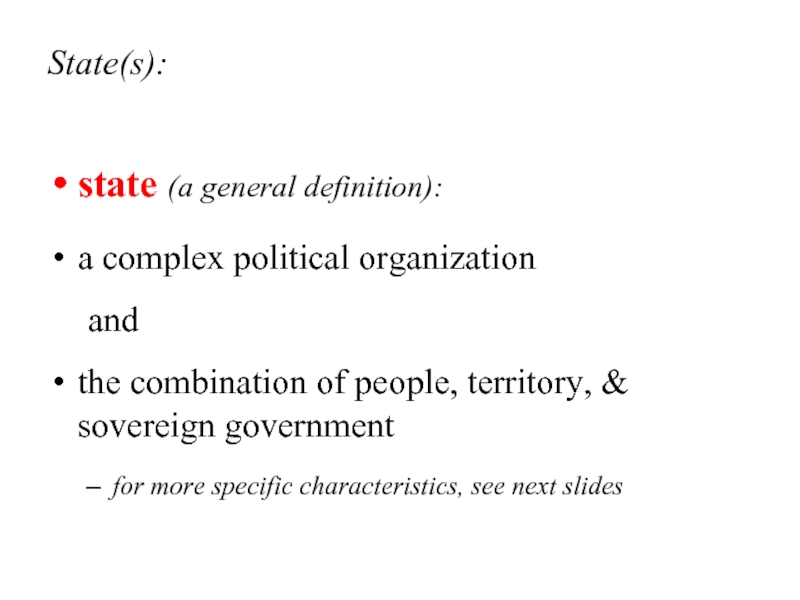
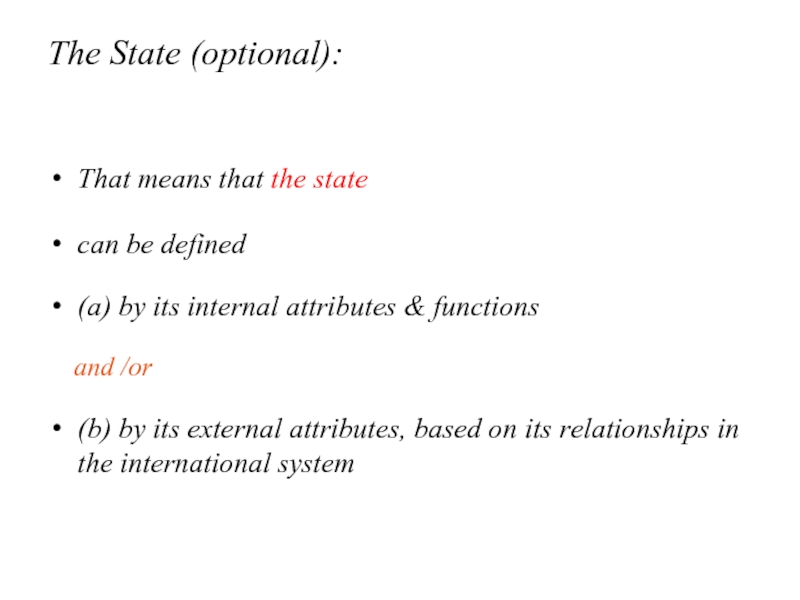
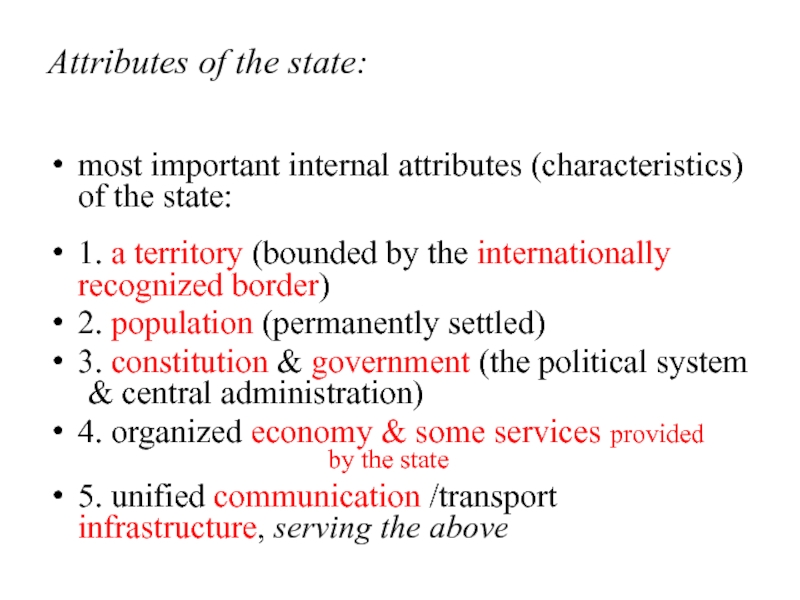
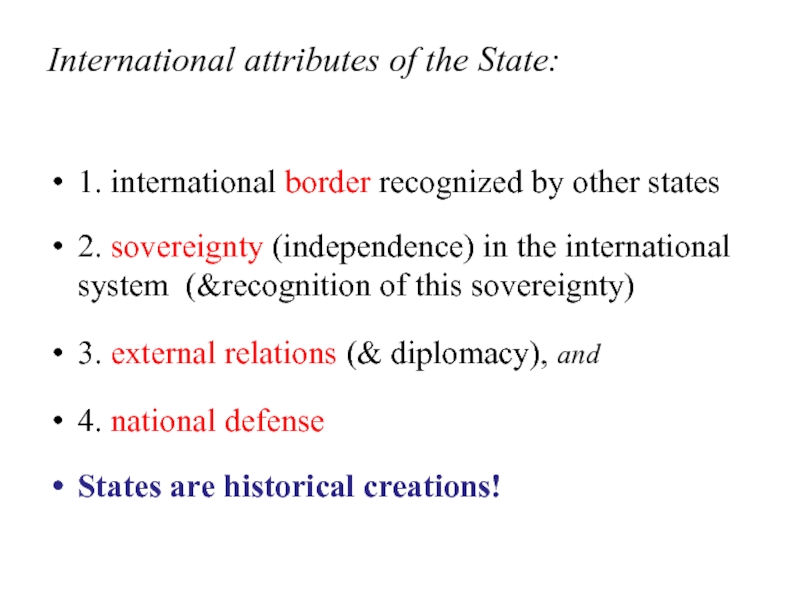
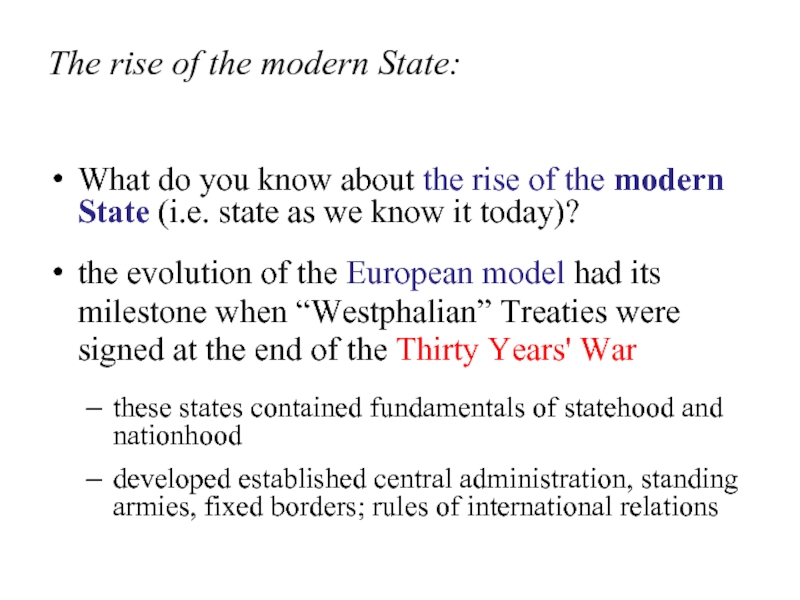
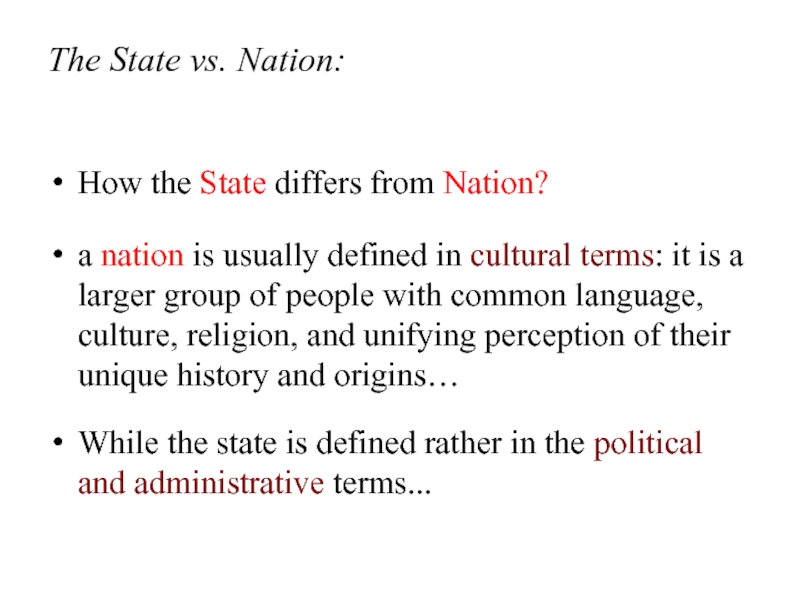
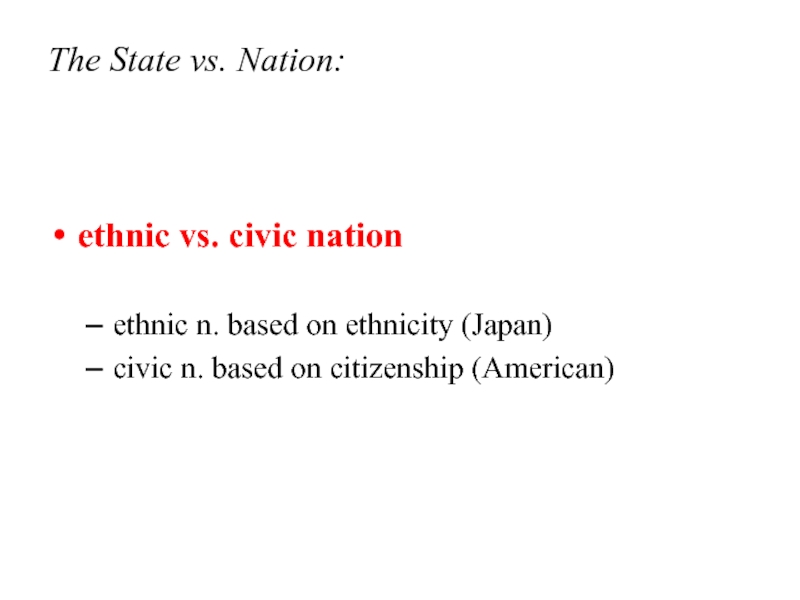
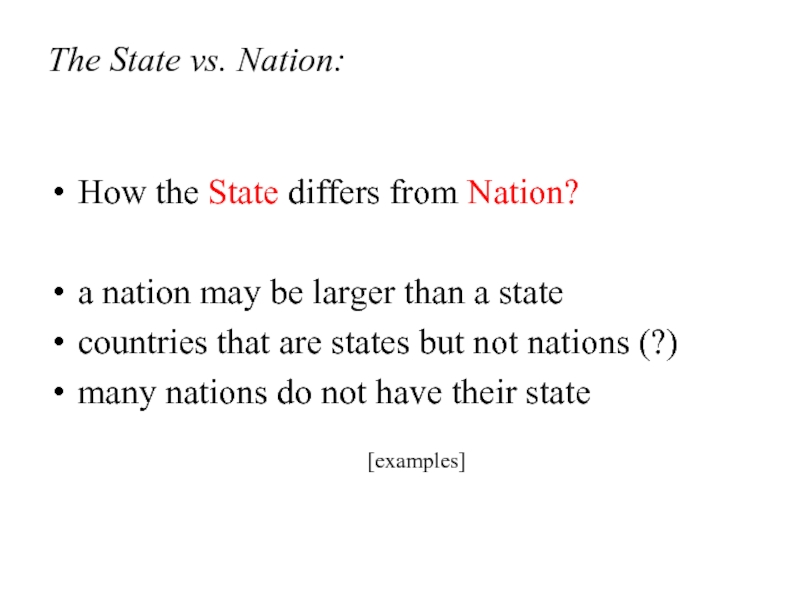
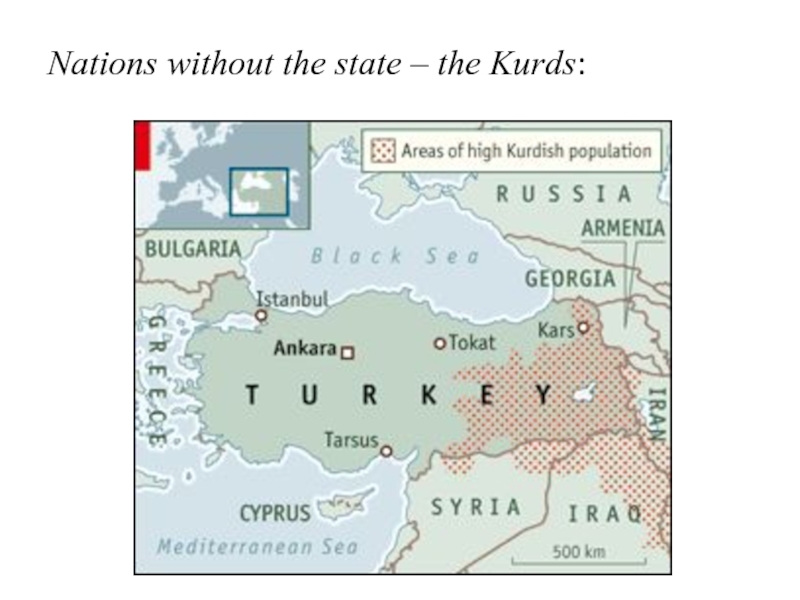
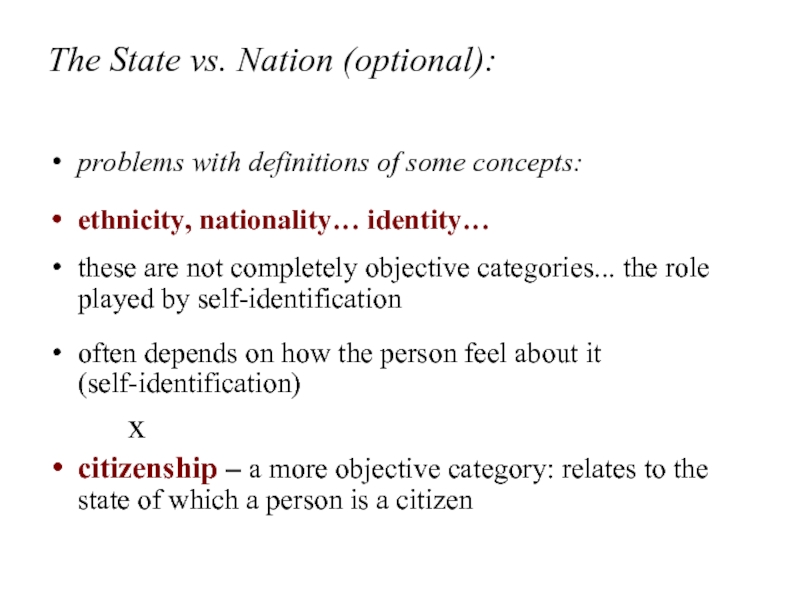
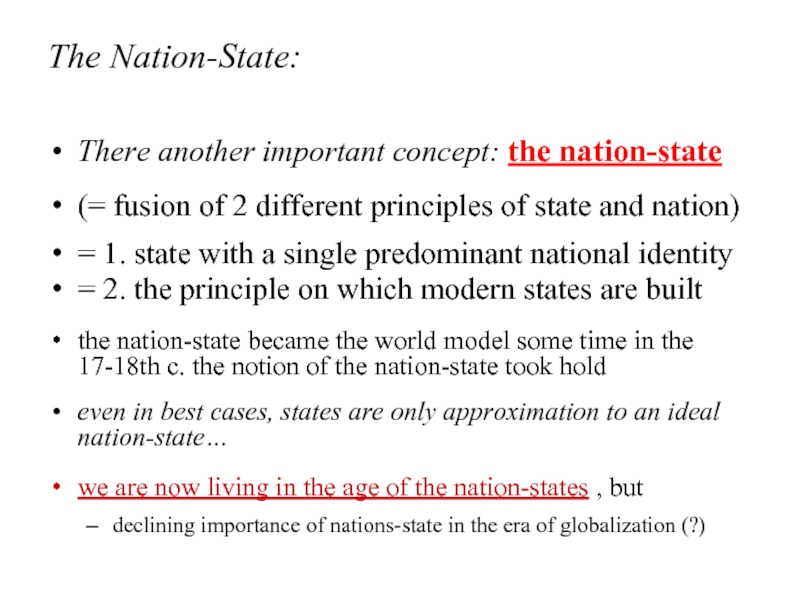
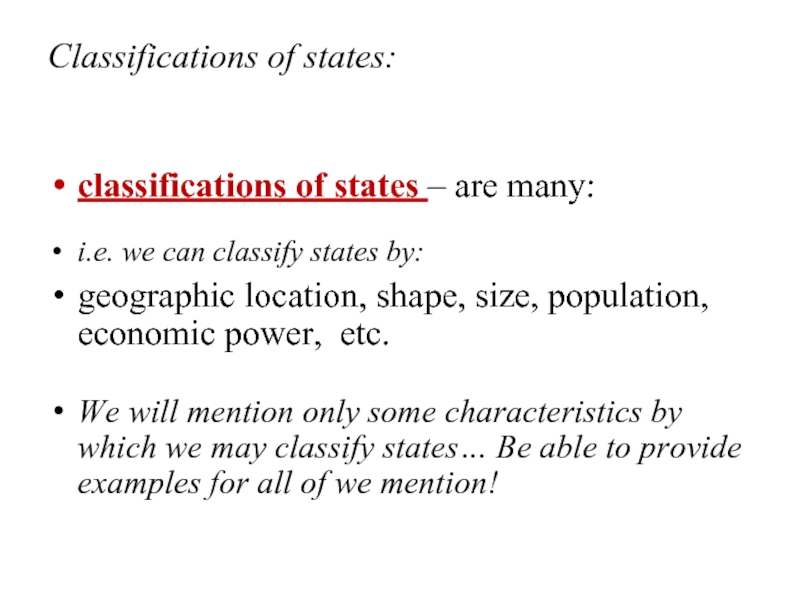
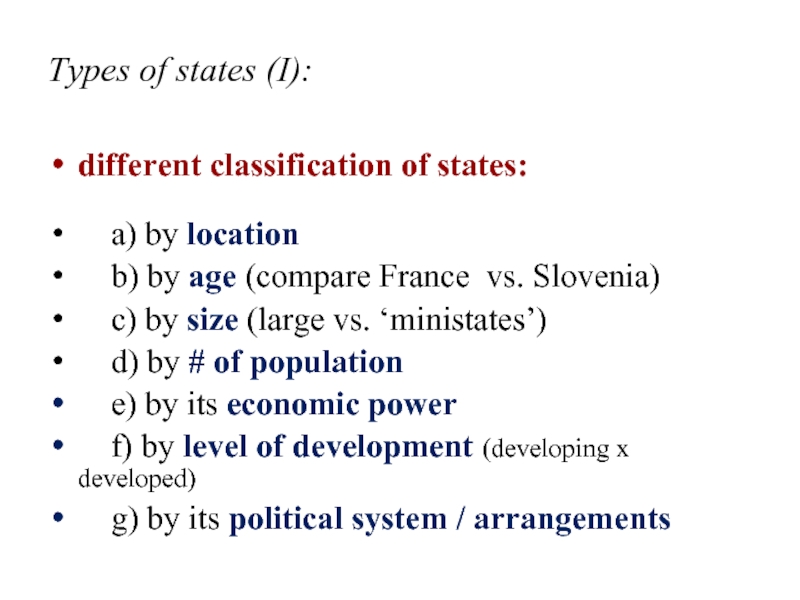
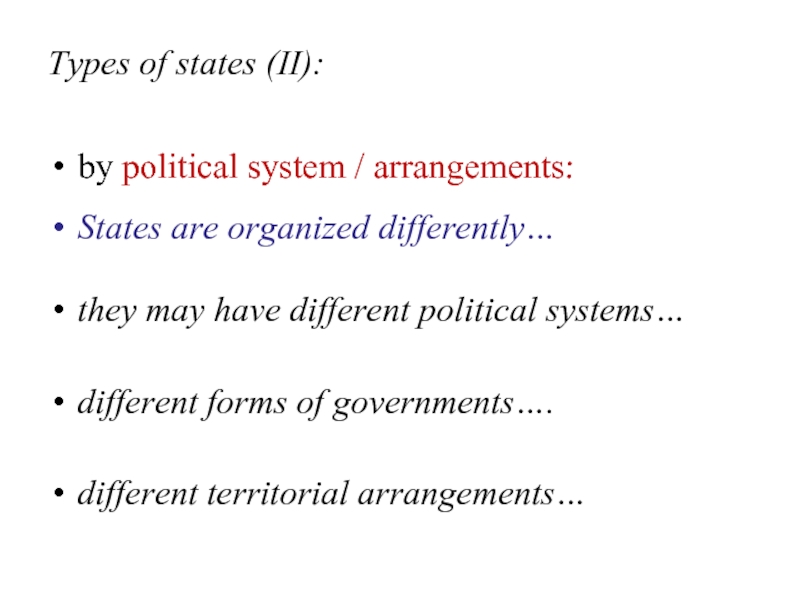
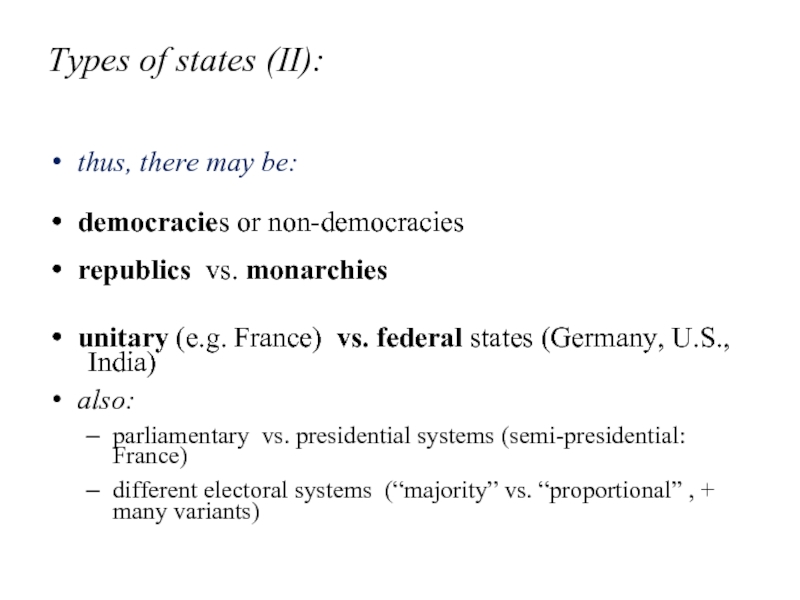
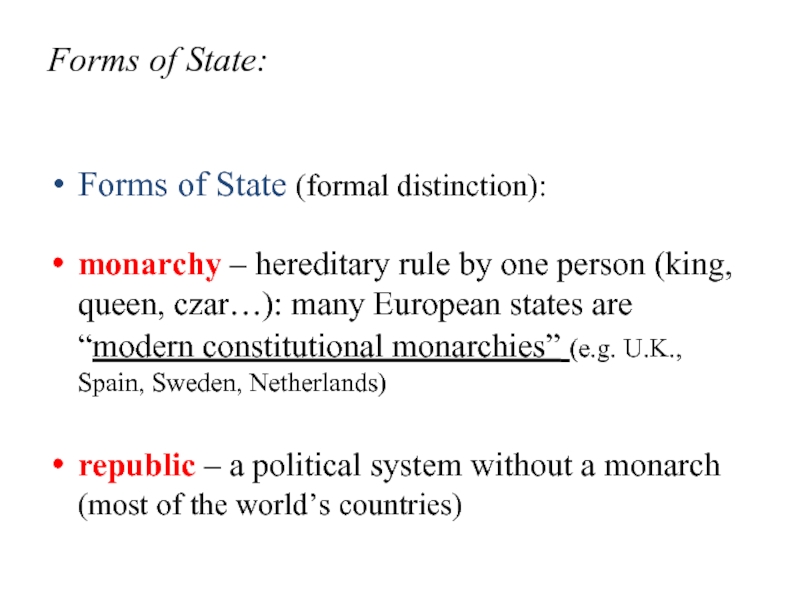
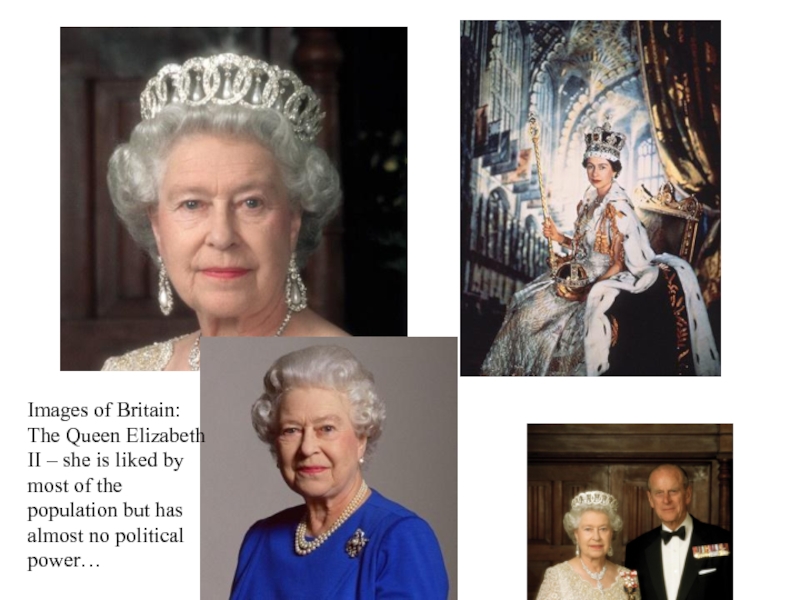
![Classifications of states:By different political –territorial arrangements…unitary vs. federal states [vs. confederations?]How they differ?Be able](/img/tmb/1/66514/8cbdd9e456d8b3a27cab9a50fba653ac-800x.jpg)
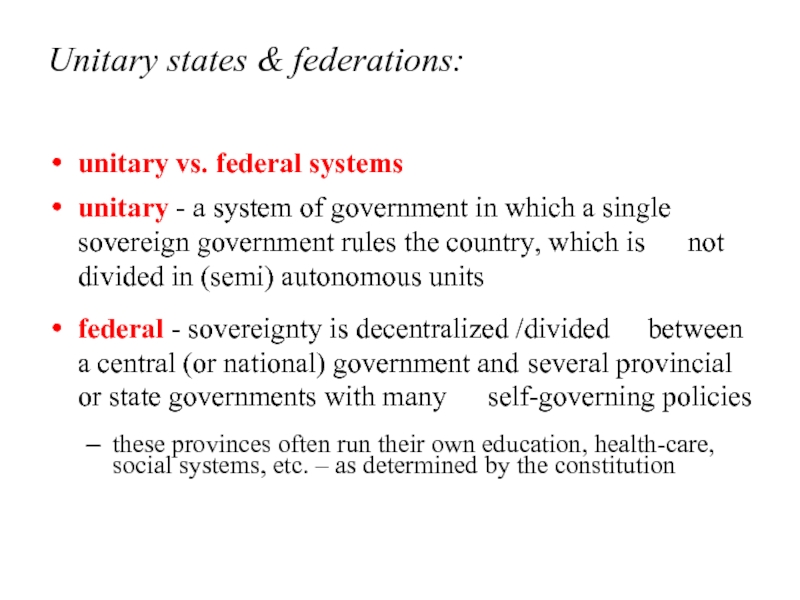
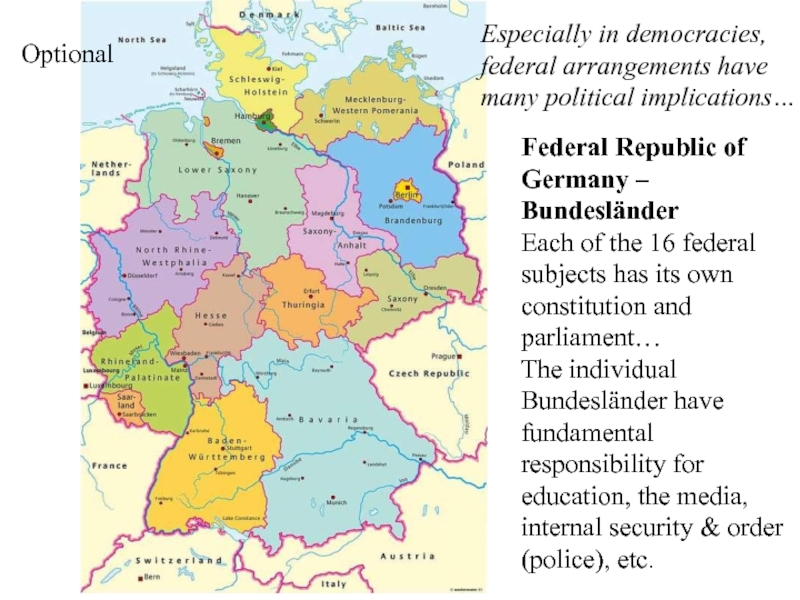
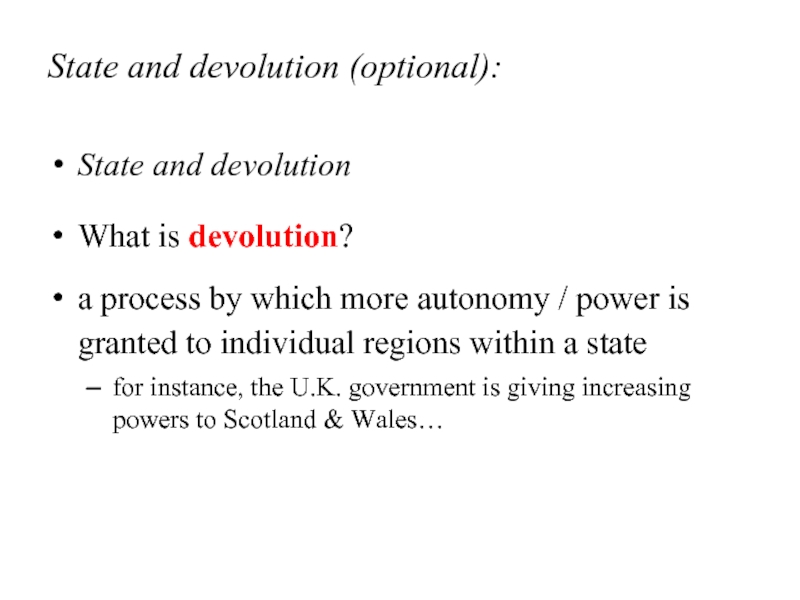
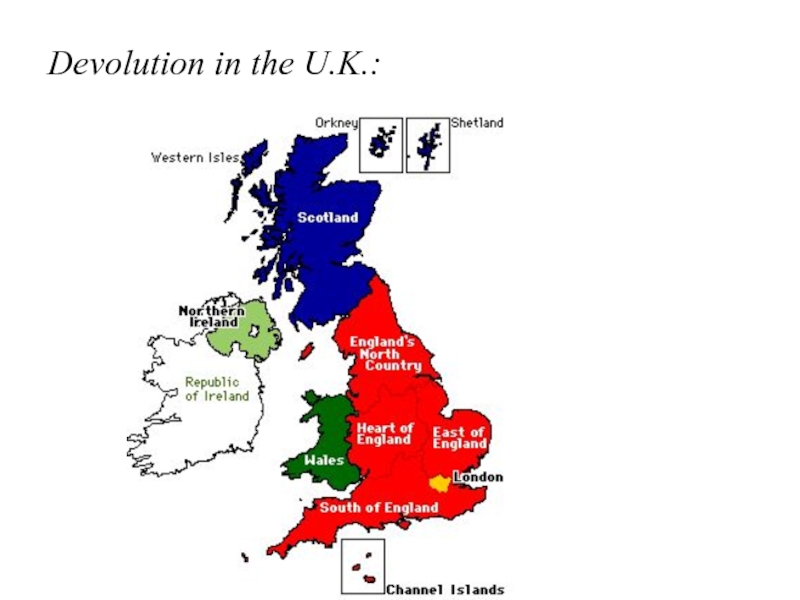
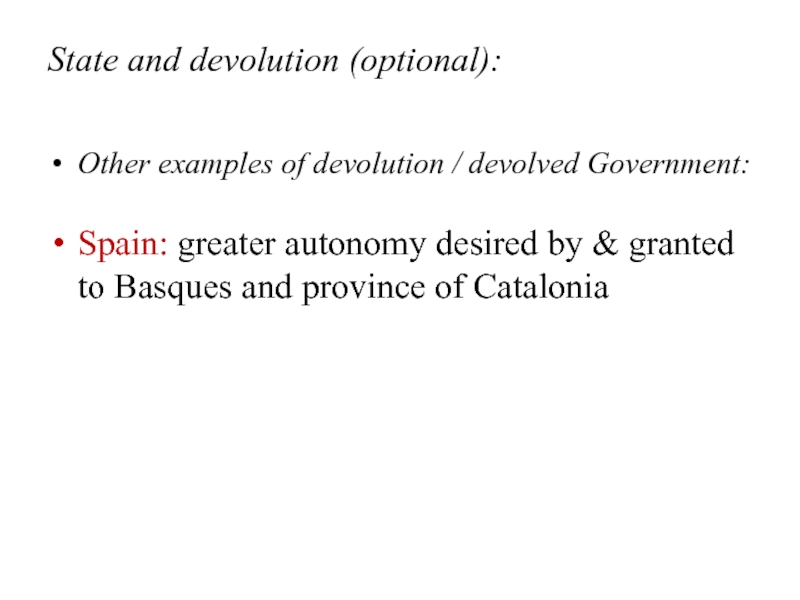
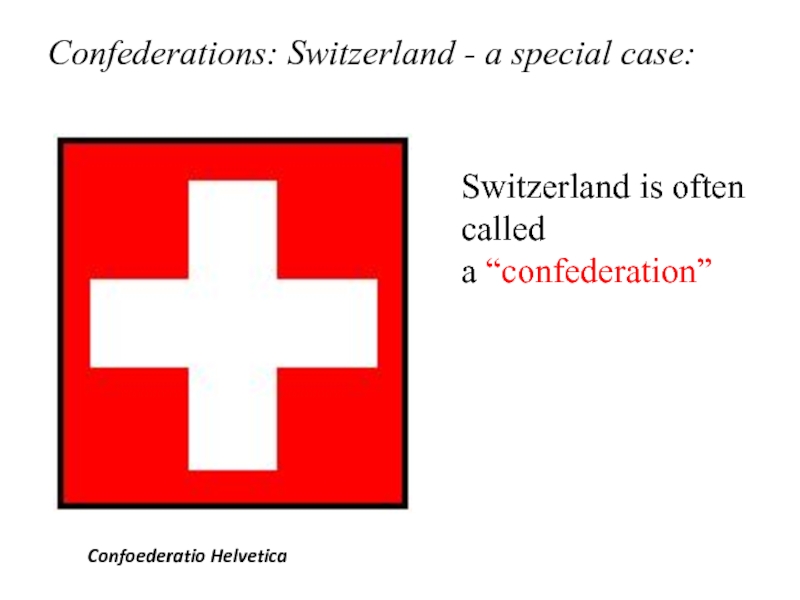
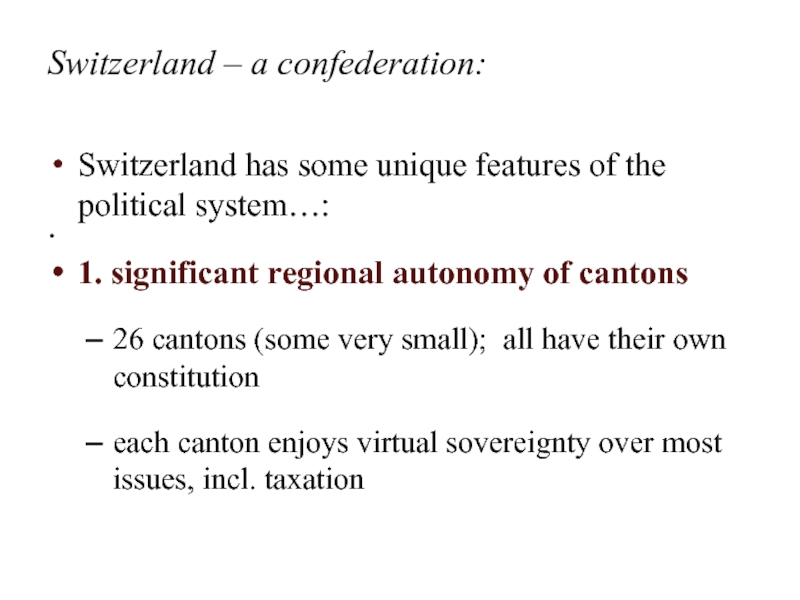
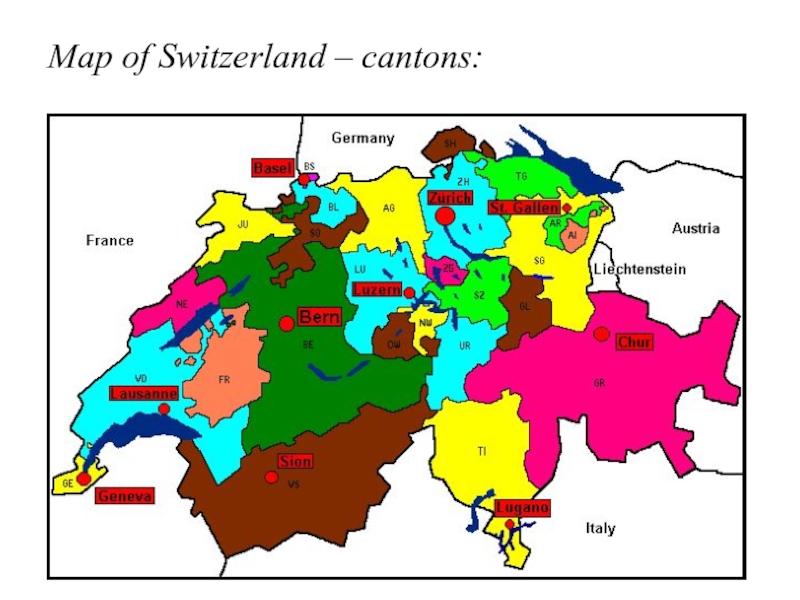
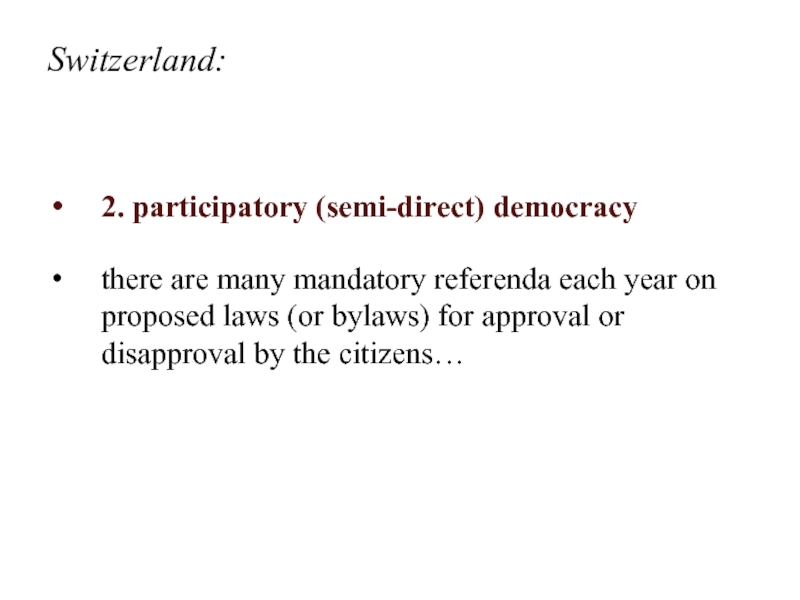
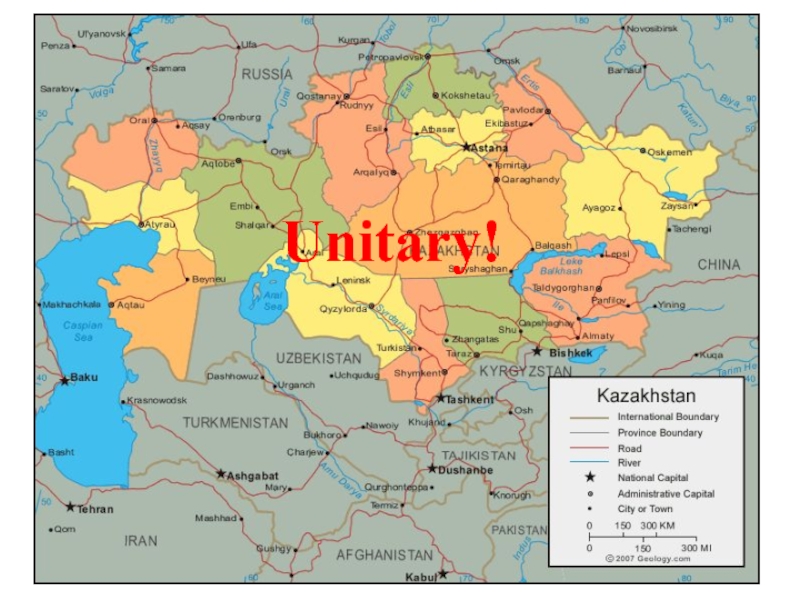
![Seminar (optional):What kind of federation is Russia?[a very asymmetrical one, and changing…]](/img/tmb/1/66514/d0d2ea5c793dcca63887adb99c0f8cab-800x.jpg)
